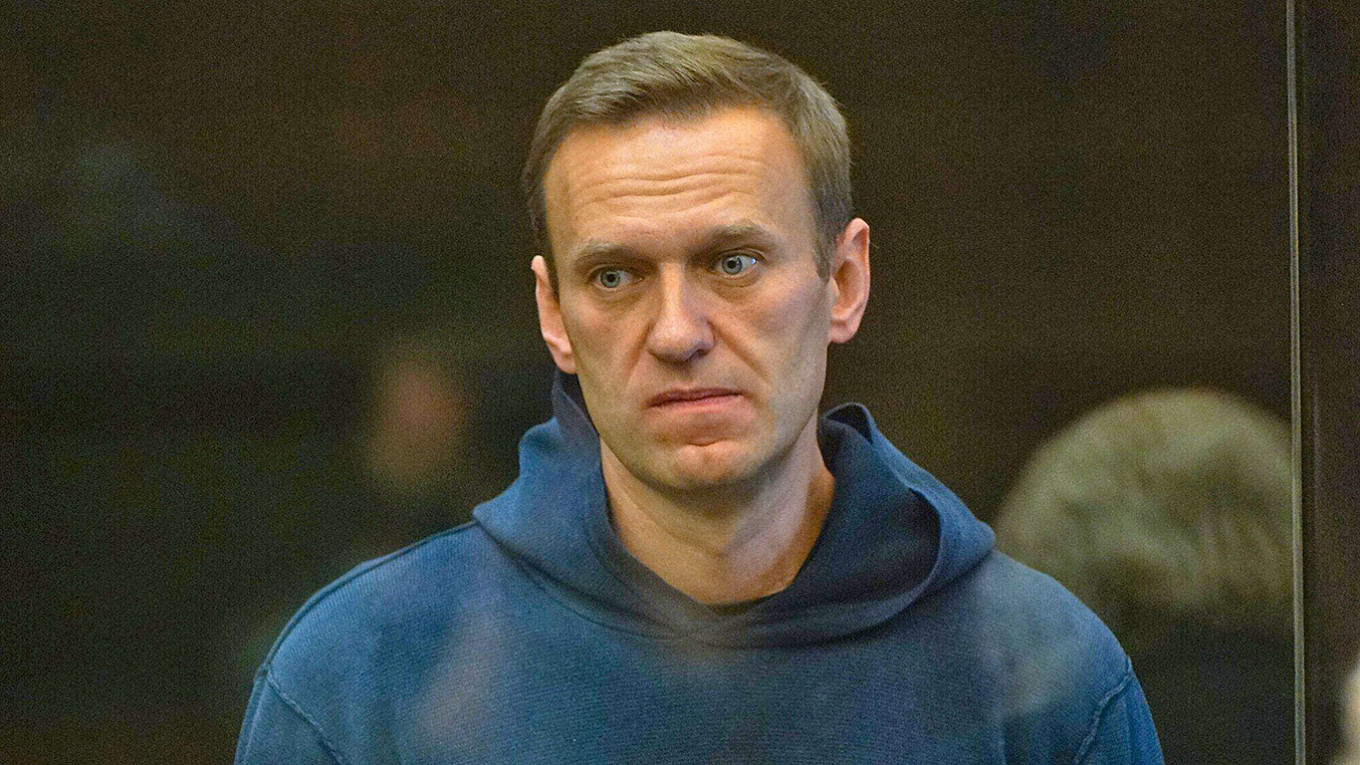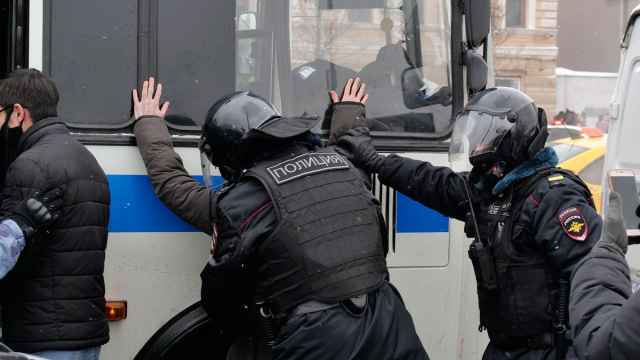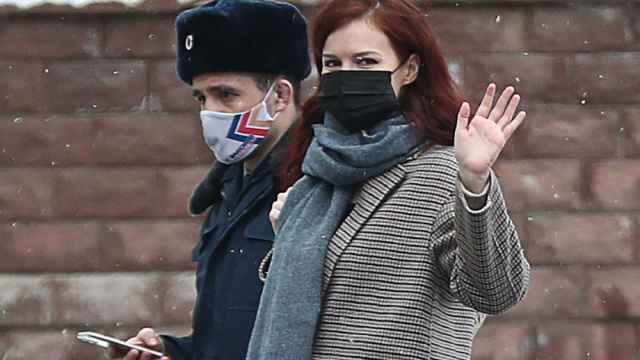Russia added Alexei Navalny and several of his top aides to the country’s “terrorists and extremists” register Tuesday.
The Kremlin critic appeared on the list, which is maintained by Russia’s Federal Financial Monitoring Service, on Tuesday. The online database lists individuals Russian authorities believe are involved in activities that support “terrorist or extremist” organizations.
The move comes just over a year after Navalny was arrested in Moscow after his return to Russia from Germany, where he was being treated for a poisoning attack. He is currently serving a 2.5-year jail term, and Russian authorities have moved aggressively to dismantle the opposition figure’s nationwide campaigning network over the last year.
Russian courts last year banned Navalny’s regional political offices, as well as his Anti-Corruption Foundation (FBK), as “extremist.” Dozens of key Navalny aides and former regional coordinators have since faced criminal charges, and most of his senior associates fled Russia and now live in exile.
At least seven of Navalny's associates and former regional coordinators were also included on the list Tuesday, the Kremlin critic’s team said on its Telegram channel. They include lawyers Lyubov Sobol and Vyacheslav Gimadi, as well as lead anti-corruption investigator Georgy Alburov.
Following Tuesday's update, some 22 people are now included on Russia's list of "terrorists and extremists" — 12 of whom are activists connected to Navalny.
Navalny’s two most senior aides — Leonid Volkov and Ivan Zhdanov, who are running the Navalny operation from exile — were included in the “terrorists and extremists” register earlier January.
The designation effectively locks them out of the Russian banking system, since the country’s financial institutions are prohibited from providing services to individuals and organizations on the list.
In a separate move Tuesday, prosecutors requested a Moscow court jail Navalny's brother Oleg Navalny, arguing he had violated the terms of his 2021 suspended sentence on charges of breaking health rules by promoting nationwide anti-Kremlin rallies to protest the imprisonment of his brother.
A Message from The Moscow Times:
Dear readers,
We are facing unprecedented challenges. Russia's Prosecutor General's Office has designated The Moscow Times as an "undesirable" organization, criminalizing our work and putting our staff at risk of prosecution. This follows our earlier unjust labeling as a "foreign agent."
These actions are direct attempts to silence independent journalism in Russia. The authorities claim our work "discredits the decisions of the Russian leadership." We see things differently: we strive to provide accurate, unbiased reporting on Russia.
We, the journalists of The Moscow Times, refuse to be silenced. But to continue our work, we need your help.
Your support, no matter how small, makes a world of difference. If you can, please support us monthly starting from just $2. It's quick to set up, and every contribution makes a significant impact.
By supporting The Moscow Times, you're defending open, independent journalism in the face of repression. Thank you for standing with us.
Remind me later.






